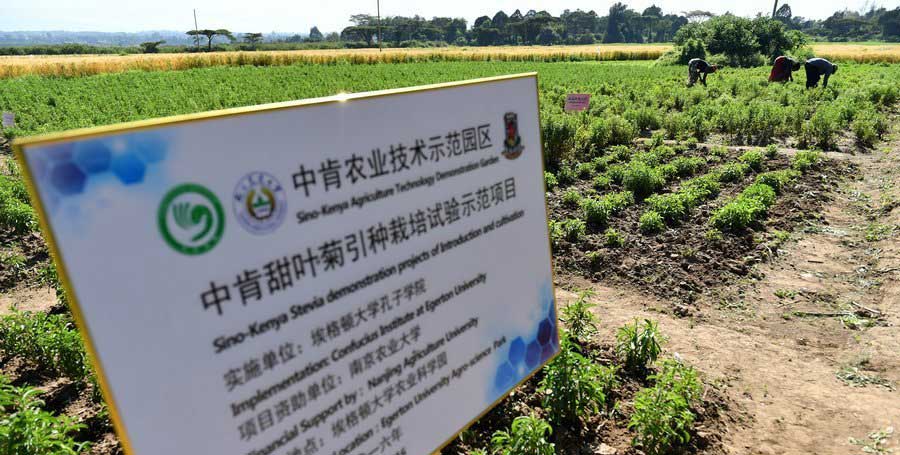
China has provided agricultural assistance to Africa for decades. Yet questions are frequently raised as to how its aid in Africa resembles those run by other development actors in terms of project assessment, management, monitoring, and evaluation. Recent developments, such as the establishment of the China International Development Cooperation Agency (CIDCA) and the deployment of more Chinese Junior Professional Officers to the United Nations have opened the space for closer collaboration between Chinese development actors and their foreign counterparts.
The Public Sector Can’t Do This Alone, Companies Should Also Play an Important Role
The challenge of agricultural assistance projects can become more self-sustaining in local communities is, of course, is the same obstacle that confronts all development partners in this space. International scholars and academics focusing on China’s development projects recommend a systematic approach of long-term strategic planning using professional tools and methodologies to facilitate engagement with local agricultural development institutions, to discover and build upon synergies beginning from the inception and feasibility phases to implementation and completion.
Chinese enterprises also play a vital role in promoting sustainability. Beyond its pursuit of profits, corporate social responsibility (CSR) should be integrated into projects and strengthened. The challenges faced by Chinese enterprises often lie in their own lack of integrated and structured CSR policies, shared appropriate standards, coordination with local stakeholders including civil society, media, and communities. To strengthen Chinese CSR in Africa, the Development Research Centre of the State Council suggests that Chinese enterprises develop strategic approaches to CSR, enhance capacity building, as well as a better communicate and engage with multiple local stakeholders.
Communication is at the Core of Fostering China’s Multilateral Agricultural Cooperation in Africa
The trend of increasing Chinese cooperation with multilateral and traditional development partners presents a lot of new opportunities in Africa. It expands the pool of financing and expertise available to the continent. It also reflects China’s ambition to take a leading role in global governance and gains energy from global partners’ push for joint and coordinated action in Africa.
Trilateral cooperation between China, Africa, and international development partners could help Africa to develop from its current dependence on subsistence agriculture towards using agriculture as an engine of growth. However, in order to achieve that development, certain hurdles have to be overcome.
International development professionals who have worked on China-led South-South and trilateral cooperation projects tend to complain about their Chinese counterparts’ lack of knowledge about UN procedures. The UN has specific rules, modes of compliance, legal norms, and so on, and trilateral cooperation would proceed more efficiently once more Chinese development professionals have become more familiar with them.
Greater knowledge of the African context would similarly aid Chinese-led trilateral projects. A lack of knowledge of local languages, cultures, and religions hamper efficient cooperation with local communities and can lead to unnecessary conflict.
In contrast, some Chinese development experts are skeptical of international counterparts’ strict regulations concerning grant agreements, their many written reports, as well as the high cost of consultancies.
Frequently, nobody is to blame for these differences. The basic fact is that the two systems are just different, and rather than focus on the differences, development practitioners should compromise and design projects based on the needs raised by African stakeholders.
For this reason, there is a strong need for strengthening communication between China and external development partners. This would help development partners to understand China’s development cooperation mechanisms and the rationale behind them, while also helping China improve its development cooperation, and better align it with international standards. Most importantly, better communication and exchange would also create synergies for sustainable development in recipient countries.
Chinese Development Actors Need to do More to Listen & Learn
China’s participation in global and regional dialogues on international development cooperation creates one channel to foster this kind of communication. At the recipient country level, China is actively participating in coordination mechanisms among development partners to enhance mutual understanding about both policies and projects and regularly interacts with domestic development partners. At the same time, Chinese agricultural experts should also conduct in-depth fieldwork in recipient communities, to get firsthand data on local farmers’ needs.

Appropriate cultural and language training could also be arranged for Chinese personnel before they are sent abroad. This will help them better to adapt to local conditions and enhance communication with their local counterparts.
The United Nations is becoming a great platform offering learning and reflection opportunities for Chinese practitioners. In many cases, the personnel working on UN-China projects tend to be chosen via Chinese secondment or assigned by the government. As such, China-financed international projects are frequently led and implemented by a China-centric team. It is therefore crucial that this staff be properly capacitated. Only with an open and learning attitude can China benefit more from these multilateral platforms.
Cathy Xi Cao is a Beijing-based Policy and Partnerships Analyst at the International Fund for Agricultural Development (IFAD)









